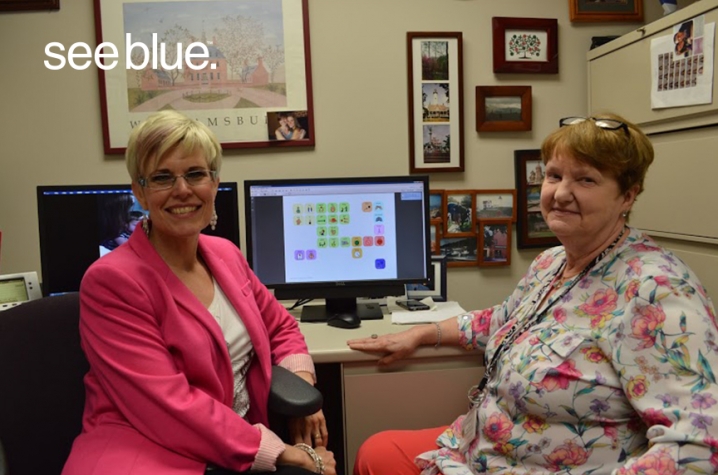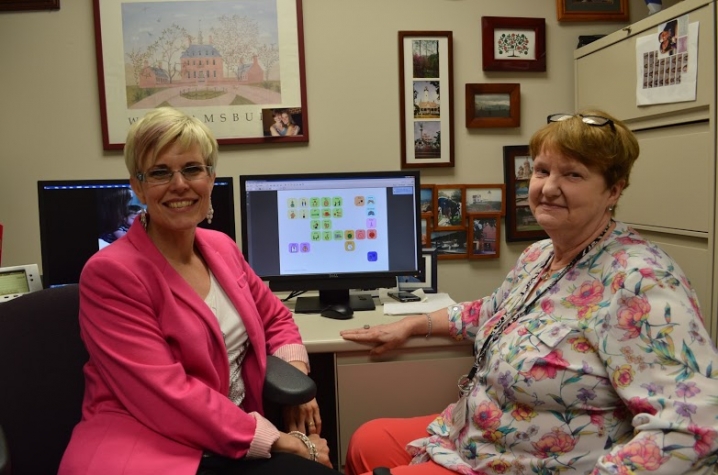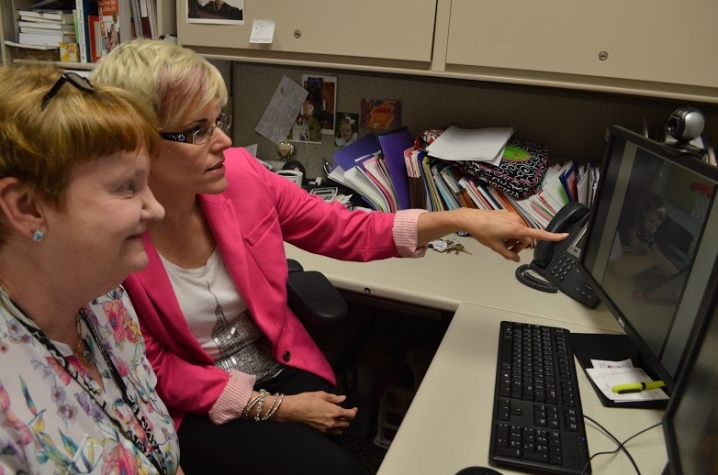Federal Grant Helps Bridge Rural Gap in Availability of Speech Therapy Services
LEXINGTON, Ky. (June 9, 2016) — Access to health care and health-related services is a chronic problem in rural America, and Kentucky with its swaths of undeveloped land in Appalachia and points west is particularly vulnerable. A number of initiatives are working to address the issue, and one in particular – using videoconferencing technology to connect experts in larger cities with patients in rural areas – has shown promise.
Via “telemedicine,” UK HealthCare physicians have been able to help women with high-risk pregnancies, Alzheimer’s patients, and many other sick people who cannot feasibly travel long distances to get their care.
Faculty from the University of Kentucky’s College of Health Sciences have been exploring ways to train a new generation of speech-language pathologists in "telepractice," a similar concept of using technology to connect practitioners and patients, to deliver therapy to underserved populations. Their efforts have been rewarded with a $1.2 million, five-year grant from the U.S. Department of Education to develop the LinKS (Linking Kids to Speech-Language Pathologists) project.
Funding will be used to prepare eight master-level speech-language pathologists annually (40 total) in the effective utilization of telepractice, thereby increasing children’s access to speech-language services in rural Kentucky schools. Assistant Professor Joneen Lowman, Ph.D., will serve as LinKS project director and Associate Professor Jane Kleinert, Ph.D., as co-director.
“Resources in rural school districts can be slim and schools are frequently unable to meet federal mandates to provide support services for children with disabilities,” Kleinert said. “Telepractice is an innovative way to help solve that problem.”
Lowman said the program will give students the skills to address the nuances in delivering therapy remotely.
“A race car driver must know more than just how to drive the car,” she said. “He must know how the car’s technology functions, how to manage gas usage…. all sorts of things that are tangentially related to race car driving, but are directly critical to success. Using technology to deliver healthcare services is very similar.”
To that end, the program will help students understand the complexities of licensure and reimbursement, HIPAA/FERPA and other privacy concerns, and even some of the more technical aspects of care delivery. “They must know how to operate high-tech equipment and understand terminology like ‘bandwidth,’ to be effective,” said Lowman. “If they can’t fix technical issues on the spot, they can’t provide the services these children need.”
Perhaps one of the most intriguing elements of the LinKS program is the curriculum on rural culture. Students will be assigned readings and attend lectures about the unique character of Appalachia and other rural areas that will inform each student’s ability to collaborate with “cultural brokers” in the communities they ultimately serve.
Hazard resident Taylor Marshall, now nine years old, participated in a trial run for speech language telepractice at UK. Taylor had hearing issues that contributed to a speech delay with certain letters and sounds, said his father, Charles Marshall.
“We looked into speech therapy for Taylor and were astonished to discover that the only place in Hazard that could help Taylor didn’t take our insurance,” said Charles Marshall. “Our only other options were to pay $50 per session to stay in Hazard for speech therapy or drive to Lexington in order to use our insurance.”
Then, Charles got in touch with Lowman, who agreed to treat Taylor using telepractice. At first, Lowman teleconnected with Taylor twice a week at the Center for Excellence in Rural Health in Hazard. Eventually, however, Taylor’s school allowed Lowman to meet with Taylor once a week via FaceTime.
“Being able to receive speech therapy services in school was a huge plus, since it reduced the amount of time Taylor spent out of the classroom,” Charles said.
Lowman used her experience with Taylor to begin crafting a systematic approach to training students in telepractice. “We scaffold (the LinKS students) through this process thoughtfully, allowing them first to practice with one another, and then with a child client in pairs, and ultimately when they're out doing a 15-week rotation in a rural school.”
Emma Davis of Louisville is one of the first students admitted to the LinKS program. She always knew she wanted to be a speech therapist, but the telepractice concept made it a more intriguing career prospect.
“I think that there are a lot of people around the world that are underserved in various aspects of health,” said Davis. “You always think of Third World countries but you really don’t even have to cross the state line to find those kids, and so I was really excited about the idea of using technology to reach those kids and to provide services to them.”
Kleinert is particularly enthusiastic about the cycle of learning, feedback and adjusting that the LinKS program – which is just one of a handful in the U.S. – will afford.
“As a land grant research university, it’s our mission to develop evidence-based practice to help our citizens lead better lives,” Kleinert said. “We know what strategies work with children in a face to face setting. What we have to find out, and give evidence to support, is whether these same strategies can also be used in telepractice, or should they be adapted or changed? So the program will not only train our students, but it should produce some very good evidence and research that can be used elsewhere in the country.”
UK is the University for Kentucky. At UK, we are educating more students, treating more patients with complex illnesses and conducting more research and service than at any time in our 150-year history. To read more about the UK story and how you can support continued investment in your university and the Commonwealth, go to: uky.edu/uk4ky. #uk4ky #seeblue








